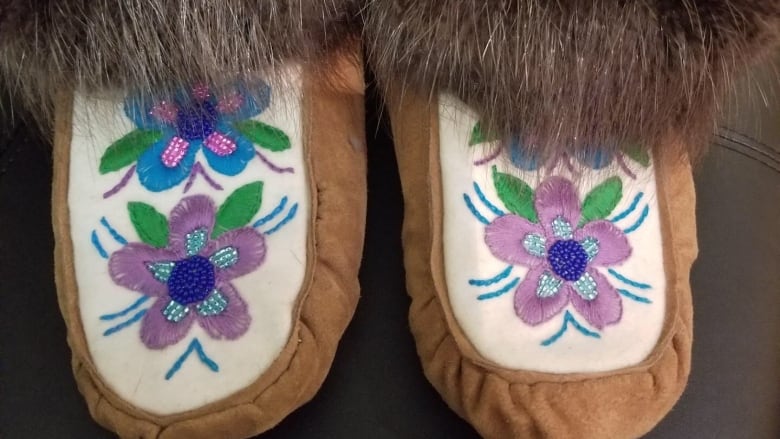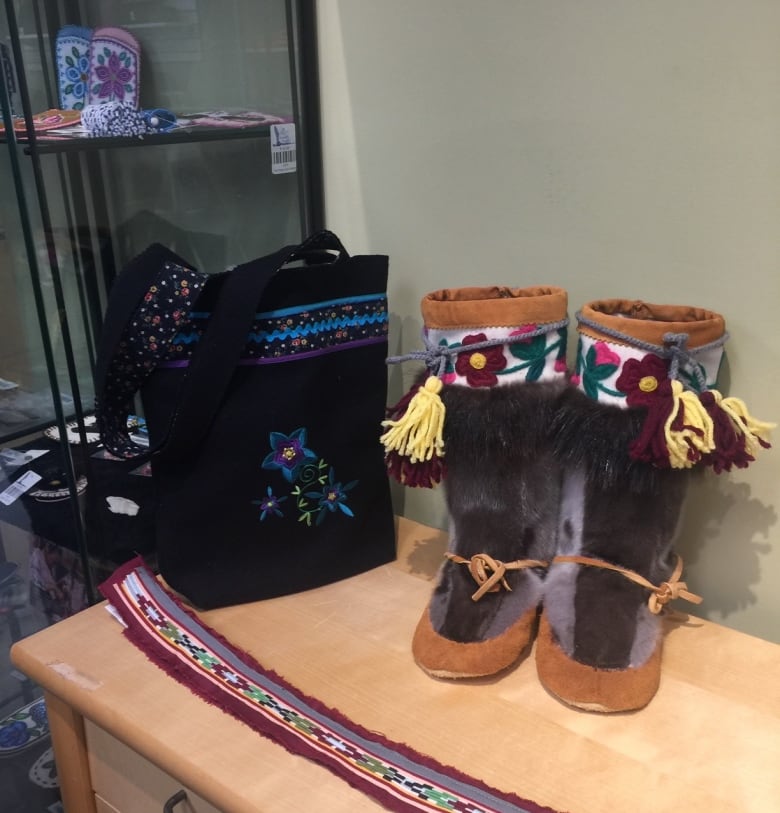Debate in Arctic Canada over who should sell traditional crafts

A Facebook post has sparked a debate in Inuvik, Northwest Territories over who should be able to sell traditional crafts at the Arctic Market, and now the Inuvialuit Regional Corporation says it will only sell items made by Indigenous artists.
Fatima Tin has lived in Inuvik for about five years and has been a familiar face at the community marketplace, where she sells traditional style craftwork such as slippers, seal skin gloves and mukluks.
But earlier this month, Tin was the subject of a Facebook post that questioned whether it was appropriate for her to sell these items, given that she’s neither Gwich’in’ (First Nations) nor Inuvialuit (Inuit).

The post’s author says Tin is taking business away from Inuvialuit and Gwich’in artisans.
The post, which has since been deleted, spread quickly across the Beaufort Delta region.
“[The writer] messaged me saying you are exploiting our culture. You are not Inuvialuit,” said Tin.
Tin, who originally came to Canada as a refugee from Burma, said this was the first she’s heard anyone complain about her products.
“Nobody ever told me, ‘Oh, why are you doing our stuff?’ Like never,” she said.
Question of cultural appropriation
In comments on the original Facebook post, people accused Tin of cultural appropriation.
Tin said since the post, she has gotten both messages of support, and comments from people telling her to stop selling her products.
“I am not copying anybody. I draw my own stuff,” she said. “And I do help a lot of crafters with their embroidery … and I’ve bought other people’s stuff.”
Tin said she comes from an artistic background. She said she makes flower arrangements and gives henna demonstrations.
Tin said she started making her craftwork after people noticed her henna designs and asked her to make uppers for slippers and mukluks.
She said she has sold other artisan’s items at her table when they couldn’t make it to the market.
“I am not doing anything to disrespect anybody,” said Tin. “It’s out of love … if people don’t want to buy it, that’s fine.”
Regional corporation to sell only Indigenous works
The Inuvialuit Regional Corporation (IRC) has sold Tin’s crafts in its store in the past, but says now it will sell only items made by Indigenous artists.
“We are being more specific in terms of purchases,” said Lucy Kuptana, IRC’s director of operations. “We have to look at it to make sure, is it Inuvialuit art? Is it Indigenous art?”
Kuptana said the argument that only Inuvialuit and Indigenous people should be able to sell their traditional crafts is legitimate, but that “Fatima’s appreciation is legitimate” as well.
Kuptana said the Inuvialuit love to share their patterns and show people how to do things, “but for financial gain? That’s the question.”
‘We don’t feel comfortable being the judge’

This isn’t the first time cultural appropriation has been raised in relation to the Arctic Market.
“Certainly the concept of what can be allowed [and] not allowed to be sold at the Arctic Market has come up, as has particular the issue of cultural appropriation,” said Jackie Challis, Inuvik’s director of tourism and economic development.
She said though no one has ever filed a formal complaint, the town is now consulting with both the IRC and the Gwich’in Tribal Council.
“We don’t feel comfortable being the judge or jury about what is authentically indigenous and what is culturally appropriate.”
Related stories from around the North:
Canada: Canada Goose unveils parkas created by Inuit designers, CBC News
United Kingdom: U.K. fashion label apologizes for copied Inuit design, Radio Canada International



